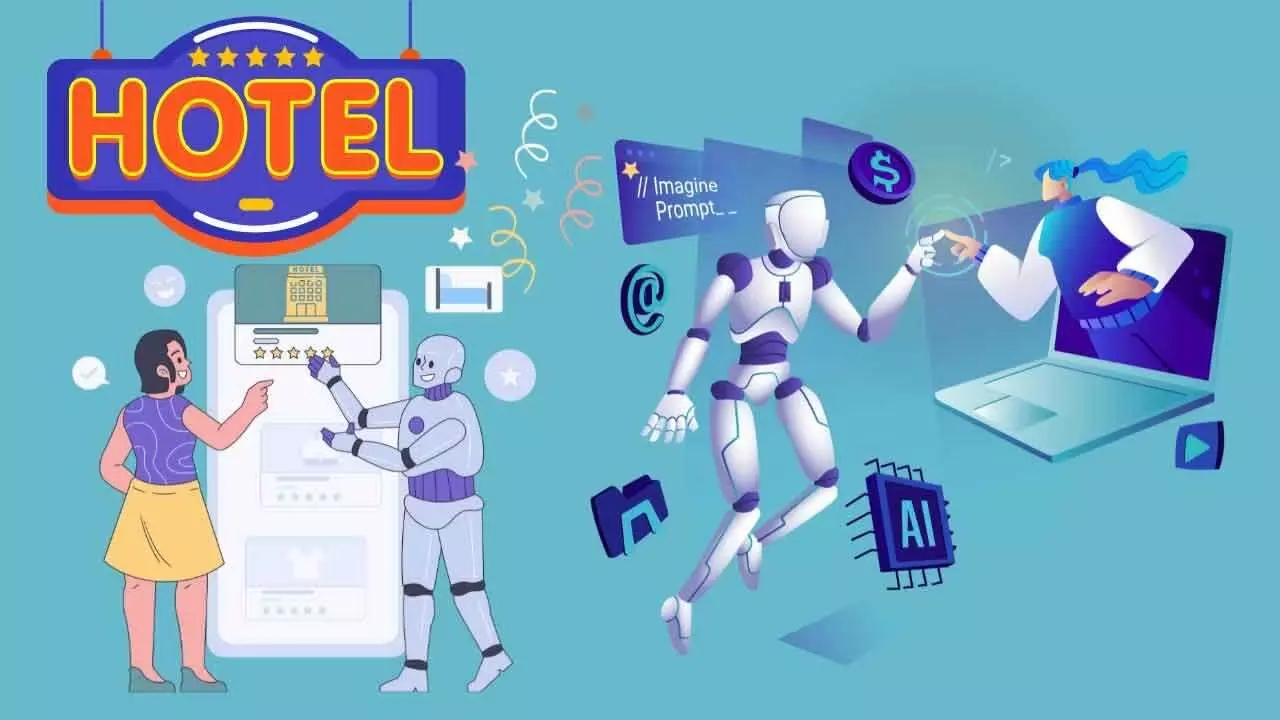AI-Driven Hotel Industry At The Threshold Of Revolution In Operational Efficiency
The AI market in travel and hospitality is expected to surpass $1.2 billion by 2026
AI-Driven Hotel Industry At The Threshold Of Revolution In Operational Efficiency

Its influence extends to pivotal areas such as distribution and revenue management. Hotel companies are actively seeking ways to diminish their dependence on online travel agencies (OTAs) by encouraging direct bookings
The advancement of artificial intelligence (AI) marks a significant shift in technology, moving from personal content creation to becoming a key driver in business innovation. Its impact is projected to be substantial, with a recent EY report estimating that AI could contribute to a 2.5-five per cent increase in US GDP by 2033. As this technology integrates into various sectors, it is set to alter the landscape for information and knowledge workers, creating new efficiencies and opportunities.
According to IndustryARC, the AI market in travel and hospitality is expected to surpass $1.2 billion by 2026, with a projected Compound Annual Growth Rate (CAGR) of over 9.7 per cent during the forecast period from 2021 to 2026.
The AI market in hospitality has been experiencing tremendous growth. In 2022, it was valued at $90 million, and by 2033, it is forecast to reach a staggering USD 8,120 million, reflecting an impressive 60% compound annual growth rate (CAGR).
AI in the hospitality refers to enhancing hospitality industry services using AI technology. It plays a vital role in meeting customers’ growing expectations with personalised recommendations based on their preferences, automating routine tasks that improve process efficiency, providing valuable insights that enable informed decision-making and predictive maintenance that minimizes downtime.
AI technology adoption allows hotels to stay at the forefront of innovation, with machine intelligence (MI) supplementing human intelligence. Around three out of five hotels are opening the door for technological innovation. Over 64 per cent of hoteliers tried the ChatGPT tool to improve customer service. Nearly 10 percent of hoteliers expected reduced dependence on the workforce, while 51 per cent experienced increased efficiency due to operations optimisation.
The transformative impact of AI on the hotel industry is set to refine customer service, enhance revenue management, marketing innovation and improve operational efficiency. Embracing and capitalising on AI’s capabilities will be crucial for the hotel sector as it strives to set new benchmarks for industry excellence.
The core value of AI in the hotel industry lies in its capacity to redefine customer service and operational efficiency. Already, deployment of AI-powered assistants and chatbots marks the beginning of this transformation with the tools becoming the primary touch point for customer interactions.
Furthermore, AI’s influence extends to pivotal areas such as distribution and revenue management. Hotel companies are actively seeking ways to diminish their dependence on online travel agencies (OTAs) by encouraging direct bookings. AI can facilitate the creation of novel booking experiences that entice customers to book directly, challenging OTAs to enhance their offerings. In revenue management, AI’s ability to process vast amounts of data can lead to more dynamic pricing strategies, resulting in meaningful improvements to net operating income (NOI).
Marketing efforts stand to gain significantly from AI’s capabilities. Tasks ranging from writing marketing content to executing comprehensive campaigns and formulating personalized guest offers will be transformed. AI presents an opportunity to achieve the long-sought goal of personalization in the hotel industry, enabling companies to deliver experiences tailored to their most valued customers.
In the realm of back-office operations, AI promises to bring about substantial improvements.
HR processes such as recruitment and employee experience can be enhanced through AI’s insights. IT productivity can be boosted, with routine tasks becoming self-service. AI’s analytical prowess can also reshape financial reporting, fraud detection and financial analysis. In procurement, the entire process from generating RFPs to contracting can be made more efficient.
In embracing AI, the hotel industry stands at the threshold of a revolution in guest experience and operational efficiency. Strategic integration, a focus on personalized service, and overcoming structural challenges are key to unlocking AI's potential. As hoteliers navigate this digital transformation, the commitment to innovation and ethical data use will pave the way for enhanced satisfaction and growth, heralding a new era of hospitality excellence.
When these initiatives are combined, they hold the potential to significantly elevate customer satisfaction, spur growth, and increase profitability. Hotels that embrace and implement AI will secure a distinct competitive advantage, setting a new standard for innovation in the hospitality industry.
AI is transforming hospitality by boosting efficiency and personalization, yet challenges remain in maintaining the industry's human element.
Hotels must strategically integrate AI, invest in technology, manage data, and train staff to enhance guest experiences and improve efficiency.
The massive potential of AI use allows hoteliers to delight their guests, unburden the staff, streamline operations, and power the marketing team with machine intelligence through different use cases.

